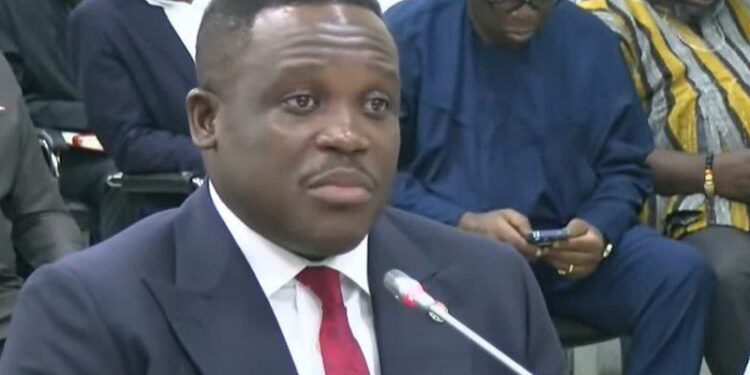Ghana’s Minister for Communication, Digital Innovation and Technology, Sam George, has declared that government can no longer shoulder the complete financial burden of operating the country’s Digital Terrestrial Television (DTT) network, signaling a major shift in broadcasting policy that could affect over 45 television stations.
Speaking at the “Broadcasting at the Crossroads” forum organised by the Africa Media Bureau at the Alisa Hotel on Friday, September 26, 2025, George revealed that broadcasters have operated on the platform for nearly a decade without contributing toward operational costs, creating an unsustainable financial model for the government.
The DTT platform, launched in 2016 under former Communications Minister Edward Omane Boamah, was originally structured with a progressive payment system. Under that plan, television stations were to enjoy free access in the first year, pay 50% of the charges in the second year, 75% in the third year, and eventually bear the full cost.
However, this cost-sharing arrangement was never fully implemented after the Ghana Independent Broadcasters Association (GIBA) challenged broadcaster fees in court, leaving taxpayers to fund the entire operation.
“The free ride bus is running out of gas, and we need to find a sustainable means of fueling the DTT bus,” George stated, using vivid imagery to emphasize the urgency of the situation.
The Minister’s announcement comes at a critical time when demand for DTT slots continues growing while government resources face increasing pressure. The revelation that over 45 stations have accessed the platform without paying operational fees highlights the scale of the subsidy burden on public finances.
George emphasized that while government plans to expand DTT capacity to meet growing demand, broadcasters must now contribute to maintaining system viability. A stakeholder meeting will be convened soon to establish a practical cost-sharing framework that ensures platform sustainability without overwhelming station operators.
The timing of this policy shift reflects broader economic pressures facing Ghana’s government as it seeks to rationalize public spending while maintaining essential services. The DTT network serves millions of viewers across the country, making its continued operation vital for national broadcasting infrastructure.
Industry observers note that this development could fundamentally reshape Ghana’s broadcasting landscape, potentially affecting smaller stations more significantly than established broadcasters with stronger financial positions. The Minister stressed that the goal remains securing the platform’s future while guaranteeing uninterrupted service delivery.
The announcement signals a transition from the current model where government bears full operational costs to a sustainable partnership between public and private sectors in maintaining Ghana’s digital broadcasting infrastructure.
George’s declaration represents a significant policy shift that acknowledges the financial realities facing government operations while recognizing the critical role of digital broadcasting in Ghana’s media ecosystem. The upcoming stakeholder consultations will determine how this transition unfolds and its impact on the country’s broadcasting industry.
Source: CNR










Discussion about this post